
Social Media and the Subscription Subject
There is a burgeoning element of social media: subscription services. One might assume that Elon Musk’s announcement of “Twitter Blue” was the spark for social media’s subscription service. In fact, taking a step back one could have seen the writing on the wall. An early and famous (yet implicit) statement on subscription services came from Mark Zuckerberg. In April 2018, Zuckerberg was brought to the US Senate to be questioned about Facebook’s role in the 2016 US Presidential election. During his appearance, former Senator Orrin Grant Hatch asked Zuckerberg, “In 2010… you said back then that Facebook would always be free. Is that still your objective?” to which Zuckerberg responded, “Senator, yes. There will always be a version of Facebook …
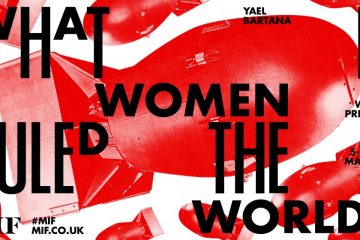
If women ruled the world, would it be so different? From differentialism to a focus on ideology
A performance featured during the summer at the Manchester International Festival attempted to tackle the following timeless question: if women ruled the world, would they confront pressing social and political issues – such as climate change, military escalation and mass migration – in qualitatively different ways? The notion that the world would look different under female leadership assumes a “differentialist” approach to gender issues. This article, on the one hand, questions the underlying assumptions of that widespread belief, and, on the other hand, sketches out an alternative approach to progressive change in general and, more specifically, for women. Why we should be sceptical about differentialism in debates on gender A first and still very common version of differentialism is the …

Blue Labour and Conservatism
Following Labour’s defeat at the 2010 general election, a new intellectual movement, close to the new leader Ed Miliband, began to gain ground within the party. ‘Blue Labour’ is most closely associated with the academic and activist Maurice (now Lord) Glasman and a small group of intellectuals and politicians. The Blue Labour agenda is set out in an ebook from 2011, The Labour Tradition and the Politics of Paradox (edited by Maurice Glasman, Jonathan Rutherford, Marc Stears and Stuart White), at the core of which is a powerful critique of Labour Party thought and policy since 1945. While many Labour supporters, activists and politicians see the achievements of the Attlee administrations as the apogee of the party’s history, Glasman and co. argue that Labour took a fundamentally wrong-turn after the Second World War, jettisoning an earlier Labour tradition of working class struggle, mutual assistance and self-help in favour of a top-down, elitist and bureaucratic model of social democracy. The principle authors argue that this basic settlement survived both the revisionism of Tony Crosland and the changes wrought by New Labour in the 1990s, contributing to the defeat of 2010, and the situation where Labour has alienated large swathes, not just of the middle class electorate, but of its traditional core working class vote as well.
The ebook is unashamedly iconoclastic—at least to those schooled in a more orthodox reading of Labour party history—but perhaps its most unexpected claim is to the mantle of conservatism. In an essay entitled, ‘The future is conservative’, the cultural theorist Jonathan Rutherford argues that Labour,
…needs to rediscover England’s radical traditions that are rooted in the long political struggle against dispossession. This includes reconnecting with an English socialism that grew out of the struggles for land and for the ownership of one’s own labour against the forces of the market and of arbitrary power. In this post-crash era, and in the wake of unregulated globalisation, Labour needs to develop a politics of belonging and a reform of capitalism that draws on the traditions of the common good and a common life.
New Labour, argues Rutherford, was, in the end, insufficiently attentive to those left behind by globalisation, those whose jobs and communities had been sacrificed to the vagaries of the market. Rutherford argues that Labour must reconnect with the long tradition of English radicalism, stretching back over centuries, grounded in the struggles of ordinary working men and women attempting to resist the dispossession and commodification that accompany the spread of capitalism. His conservatism is about the importance of stability and continuity in work and local communities and in recognising the importance of rootedness and a sense of home.
There are strong hints here of the conservative philosopher Roger Scruton’s insistence on the centrality of the experience of home to English identity: “England was first and foremost a place—though a place consecrated by custom.” Scruton is certainly a thinker Blue Labour likes to engage with. In a recent blog post for (the appropriately titled) Conservative Home, the Labour party’s Policy Co-Ordinator, Jon Cruddas MP (also a contributor to The Labour Tradition), reflects on Scruton’s new book, How to be a Conservative: he describes his Conservatism as a love of home. By which he means the common life and inheritance that belongs to “us”, the people, and which grows out of everyday life. Home is our customs, habits and language, our neighbourhoods and the landscapes we live in. It is also the generations who have been and those to come, the history of our country, and our memories. It is not ethnic in its origins, but it requires integration into its membership.
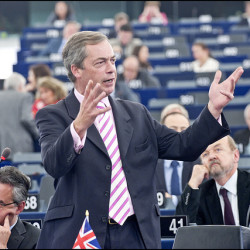
Where is British conservatism today: UKIP, conservative, libertarian or something else?
As was said in the opening paragraph of this series, a well-rehearsed interpretation of UKIP is that they are a grouping to the right of the current Conservative party, dissatisfied with the old party’s failure to stand up to Europe and its perceived leftwards shift under Cameron. In this view, UKIP are, to quote a recent Labour party campaign, “more Tory than the Tories”. There is certainly something to be said for this claim. Leading figures in the party, as well as party activists, are former members of the Conservative party, not least Nigel Farage himself. While we await their 2015 election manifesto, a number of policies that have been proposed recently also seem to point in the direction of an ultra-Tory agenda, such as plans to abolish inheritance tax. But UKIP’s own constitution brands it as a “democratic, libertarian party”, while its most famous recent acquisition, Douglas Carswell, describes himself on his own twitter account as a “free trade Gladstonian liberal”. What are we to make then of UKIP’s ideology and identity?
Firstly, it is only right to point out that UKIP, like almost all political parties, represents a coalition of different views. In particular, it displays a similar kind of mix of conservatism, liberalism and libertarianism that we find in the Conservative party. It is probably fair to say that libertarianism is a term less familiar to British political culture than to that of the United States, but British conservatives (including members of the Conservative party) often like to claim the mantle of liberalism and individual liberty, usually relating these ideas to the promotion of free enterprise, reduced state intervention in the economy and individual responsibility. That Mrs. Thatcher was an ardent admirer of Gladstone is no secret, and Simon Heffer has gone as far as to argue that she is best understood as a latter-day champion of Gladstonian liberalism, rejecting many of the values that had come to be associated with Toryism in the nineteenth and twentieth centuries, such as paternalism and protectionism. It is worth noting that Gladstone himself began life as a Tory.
But once again, it might be argued that this merely attempts to reduce modern conservatism—encompassing UKIP—to free-market liberalism, when in fact it can be clearly distinguished from liberalism in other crucial respects. First of all, patriotism and nationhood are clearly central to both the contemporary Tory party and to UKIP. While both express outward-looking views on free trade, they also wrap themselves unashamedly in the flag and bang the drum for British values and virtues wherever possible. On the issue of mass immigration, while the Tory party are more divided, UKIP are, of course, vociferously opposed, pointing to the need to withdraw from the EU as the only way to guarantee full control over migrant entry into the country. Compare this to the liberal internationalism of Nick Clegg, an economic liberal in key respects, but alone amongst the three main party leaders in his outspoken support for the EU. Other UKIP policies are also suggestive of an ultra-conservative agenda rather than a liberal one, including the promotion of grammar schools and tougher sentences for prisoners. Then there are those amongst the party’s rank-and-file who occasionally crop up to embarrass the leadership, like councillor David Silvester, who, earlier this year, claimed that recent flooding had been the result of the government’s legalisation of gay marriage. While there is no suggestion that this particular view is widespread within the party, it nonetheless hints at an undercurrent of extreme, evangelical social conservatism that feels quite alien in secular Britain, but is perhaps not quite as distant as we like to think.
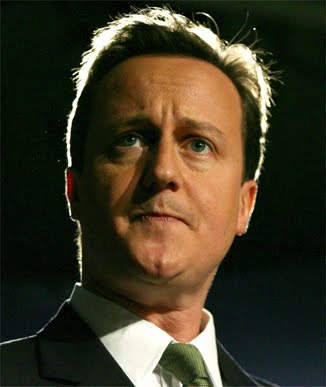
Where is British conservatism today?
On Friday 10th October 2014, Britain woke up to the news that the voters of Clacton-on-Sea had elected a UKIP Member of Parliament. To some, no doubt, this marked the inevitable culmination of the fracturing of the British right that began over twenty years earlier with the ratification of the Maastricht Treaty, under the auspices of the then Conservative Prime Minister, John Major. It was this episode that led first to the formation of the Anti-Federalist League and then to its successor organisation, the United Kingdom Independence Party, in 1993, which has since attracted significant numbers of disaffected Tories, angry at the Conservative’s apparent acquiescence to further European integration. UKIP has grown now to a membership of over 35,000 and seems to be finally breaking out of its single issue, single personality mould, to become a real electoral challenge to the Tories. The recent defection of two sitting Conservative MPs, Douglas Carswell and Mark Reckless, to UKIP, confirms for some people what they have been thinking for a long time: that the Conservative Party no longer does what it says on the tin, that it is, to quote the journalist Simon Heffer, “insufficiently conservative”, the torch of conservatism having now passed to Farage and co.
In this post, the first of three on conservatism in Britain, I want to consider the plausibility of this claim, as part of a broader attempt to determine which political party in Britain today has the most convincing claim to the mantle of conservatism.[1] The answers are by no means clear-cut (they rarely are in politics) and may even seem counter-intuitive. It must be stated at the outset that conservatism is not, by any means, a single, coherent or homogenous ideology. It consists of various branches and traditions and shares similarities with other, nominally distinct, philosophies—notably liberalism. This undoubtedly complicates the task in hand, but it is important to recognise the complexity of the object of study before embarking on the analysis.
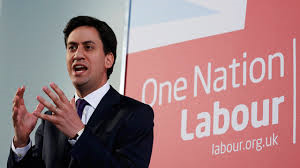
Ed Miliband’s Labour and ideology. Did New Labour change the party forever?
In 2010, Ed Miliband inherited a party troubled by tensions and confusion. After three electoral victories and 13 years in office, New Labour had lost its appeal due to the legacy of the Iraq war, a series of burning scandals and endless backbenchers’ rebellions. Blair had resigned in 2007, replaced by his eternal rival Gordon Brown, with many of those within Labour seeing him as more traditionally left-wing and able to rescue the party from its decline. Yet, the 2008 financial crisis had promptly interrupted Brown’s brief honeymoon with the electorate and Labour had lost the 2010 General Elections, leading to a Conservative-Lib Dem coalition government. Ed Miliband, a young Brownite, then won a bitter leadership contest, in which the main adversary was his brother David, one of Blair’s closest advisors. Ed obtained the support of most of the Unions and of many social-democrats who had at some point started to despise the Blairite model, examples being Roy Hattersley and Neil and Gladys Kinnock. He did so by differentiating himself from the previous leadership, declaring that New Labour was over and running a quite leftist campaign.
Four years later, many question what the current leadership actually stands for and whether Labour has witnessed an authentic ideological revision. On the one hand, Miliband launched the new slogan ‘One Nation Labour’, inspired from a famous Disraeli’s speech, which has been praised as an attempt to revitalise socialism in the context of the current economic crisis, as well as criticized for flirting with rightward doctrines such as compassionate conservatism. On the other hand, he has often declared his preference for an open and pluralist model of leadership and defended the value of a lively internal debate. Therefore, despite describing himself as ‘a European social-democrat who takes inequality very seriously’, Miliband has witnessed and even promoted the rise of a number of ideological sensibilities.
Party factions, think-tanks and research institutes defending sometimes very different positions, such as Progress, Compass, Tribune or Briefing, all contributed to this lively debate.
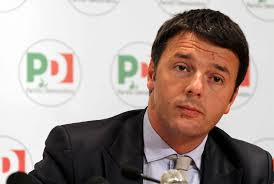
Matteo Renzi’s PD eight months later: where now for the Italian left?
Leading the Italian left has never been an easy task. After the collapse of democratic centralism (i.e. the Leninist practice which obliged the membership to uphold any leader’s decision following an internal discussion), leadership has soon become the Achilles’ heels of the Italian former communists. Party secretaries have been weakened by the rising power of internal factions, used as scape-goats after electoral defeats and blamed for both lack of charisma (Pierluigi Bersani) and excessive protagonism (Massimo D’Alema and especially Matteo Renzi himself).
Moreover, the presidential leadership style of its eternal enemy, Silvio Berlusconi, made the Italian PD (Democratic Party) rather unenthusiastic toward the trends of personalisation and presidentialisation spreading all over Europe. It is not by chance that the Berlusconian model always comes up when discussing Renzi’s personality and politics. Internal opponents and critical observers denounce Renzi’s simplified language and slogans, as well as his post-ideological appeal and charismatic governance. He is even often described as the son of Berlusconi, in the same way that Tony Blair was once called the son of Thatcher.
Albeit controversial, Renzi’s personalized approach seems to have played a key-role in his rise to power. Studies conducted among the delegates at the 2013 Party Conference show that the party’s majority backed him in virtue of his personal characteristics and leadership skills rather than political message. Moreover, whereas the 2012 delegates expected the at-that-time-leader Bersani to promote a process of identity reconstruction and grassroots’ institutionalization, the 2013 Conference asked Renzi for concrete strategies to win the next General Elections (Martocchia Diodati 2014).
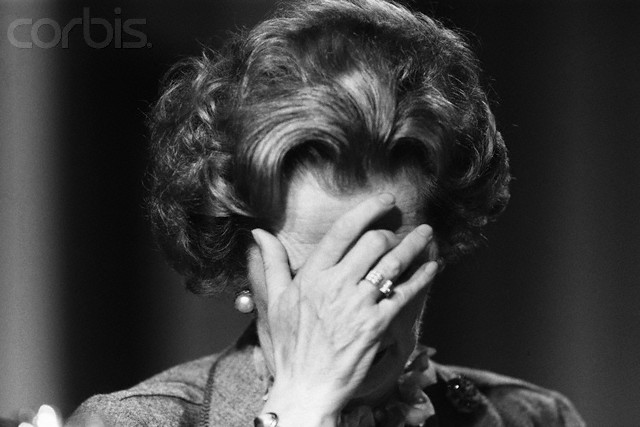
Thatcherism outlives Thatcher
‘We have created the new common ground, and that is why our opponents have been forced to shift their ground…We are told the Social Democrats now see the virtues of capitalism, competition and the customer. We have entered a new era. The Conservative Party has staked out the common ground, and the other parties are tiptoeing onto it.’
“The facts? The facts? I have been elected to change the facts!’’
Lady Thatcher was loved, loathed and never ignored. Thatcher can be classed together with David Lloyd George and Clement Attlee as political leaders who sought power with the express intention of changing society, and did so to the best of their ability. Thatcher was reputedly asked what her greatest legacy was and she answered ‘New Labour’. Peter Mandelson, meanwhile, a doyen of New Labour, stated in June 2002, ‘We are all Thatcherites now!’.









